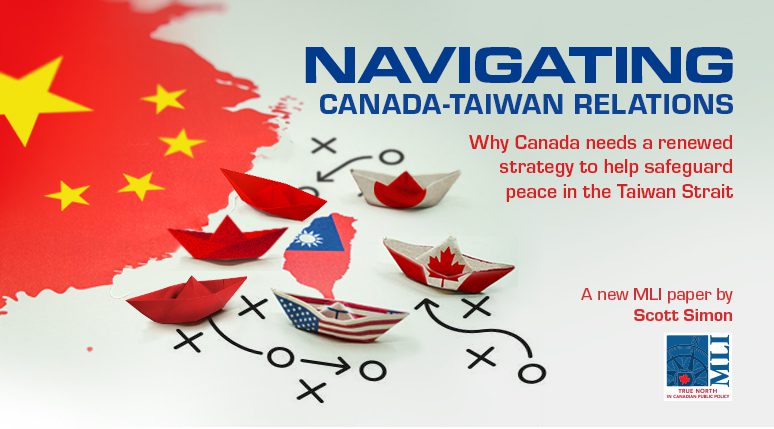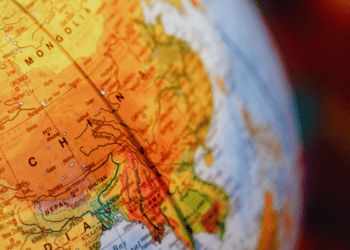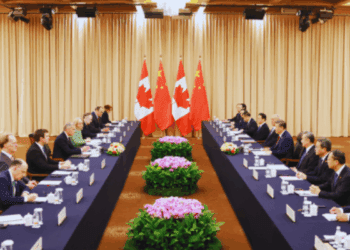 By Scott Simon
By Scott Simon
October 12, 2022
Executive Summary
While Canada legitimately has a valuable relationship with Taiwan, most of the attention Taiwan receives is a result of its connection to the People’s Republic of China (PRC) and its role in Sino-American strategic competition. A recent example of this dynamic is from August 2022, when China carried out military exercises around Taiwan as an “impromptu” escalation in response to a one-day visit to Taiwan by US House Speaker Nancy Pelosi.
High-level political visits to Taiwan should be a normal part of international diplomacy – and would be in the absence of Chinese hostility toward Taiwan. Taiwan’s democratically elected state maintains formal or substantive diplomatic relations with most of the world, including Canada. But state leaders don’t use usual descriptors for these diplomatic relations because they are coerced by China to use other vocabulary.
For historical reasons, the name of Taiwan’s state is the Republic of China (ROC), but the PRC has never ruled Taiwan. In this context, Canada has developed its own independent stance toward Taiwan and, importantly, never endorsed PRC territorial claims over Taiwan.
Beginning in the early 1950s through the first and second Taiwan Strait crises, Canada has juggled the assertions and demands of both sides, dealing pragmatically with the reality that both states exist and it is in Canada’s best interests to deepen trade and other relations with both states. In 1968, then Liberal Party leader Pierre Trudeau summarized this position neatly: “Our aim will be to recognize the People’s Republic of China government as soon as possible and to enable that government to occupy the seat of China in the UN, taking into account that there is a separate government in Taiwan.”
Taiwan has become one of the world’s wealthiest countries. It has also seen one of the world’s most dramatic transitions to democracy, which has allowed the people of Taiwan to remake the ROC in their own image.
Economic relations between China and Taiwan have been strong for decades. From January to April 2022, the value of cross-strait trade was US$71.2 billion, up 14.4 percent from the previous year. Exports to China accounted for 26.2 percent of Taiwan’s total exports; and imports from China were 20.1 percent of its total imports. China has pragmatically signed agreements with Taiwan resembling international treaties. Even cross-strait exchanges enact Taiwan’s sovereignty through border controls and immigration policies.
Since the early 2020s, however, China has increased its aggressive posture toward Taiwan, both at sea and in the air. The goal of China’s belligerence seems to be the elimination of the median line as a military boundary. China’s unilateral military posturing has brought cross-strait relations to a historical low point. China’s action undermines the arguments made, in Taiwan and internationally, that increased trade will inevitably lead to peace. There is a risk that, if the international community fails to demonstrate the will and capacity to maintain stability, China could employ non-peaceful means to assert control over Taiwan.
What can Canada do to continue to do to uphold the rule of law, peace, and human rights in the Taiwan Strait?
As this paper goes on to suggest, Canada should update its Taiwan strategy, including holding discussions directly between Canadian and Taiwanese government officials, former diplomats, academics, and think tanks. Parliament, too, can enhance its role, perhaps even by following Japan’s example of a party-to-party Taiwan security dialogue. Situations could develop in which international recognition of Taiwan becomes the best strategy to deter war and Canada could lead the way. Canadian businesses and citizens on both sides of the Taiwan Strait need a government prepared for various contingencies.
Canada has always maintained that peace and rule of law in the Taiwan Strait is an international concern. A practical recognition of Taiwan’s existence combined with the hope that its people will someday exercise their right to self-determination has long been the cornerstone of Canada-Taiwan relations. A renewed Taiwan strategy as part of a larger Indo-Pacific plan is necessary to maintain the peace and prosperity that we have enjoyed for the past seven decades and hope to bequeath to future generations.






